If there’s one thing I know about pork stews, it’s that the right combination of herbs and spices can make all the difference between a flavourful dish and a dull one.
For this reason, I’m sharing with you my personal picks for the 15 best herbs and spices to add to your favorite pork stew recipes.
From aromatic favorites like rosemary and sage to more exotic additions such as star anise, these blend of ingredients will guarantee both amazing aromas and intense flavor combinations.
So try out my top recommendations – your taste buds will thank you!
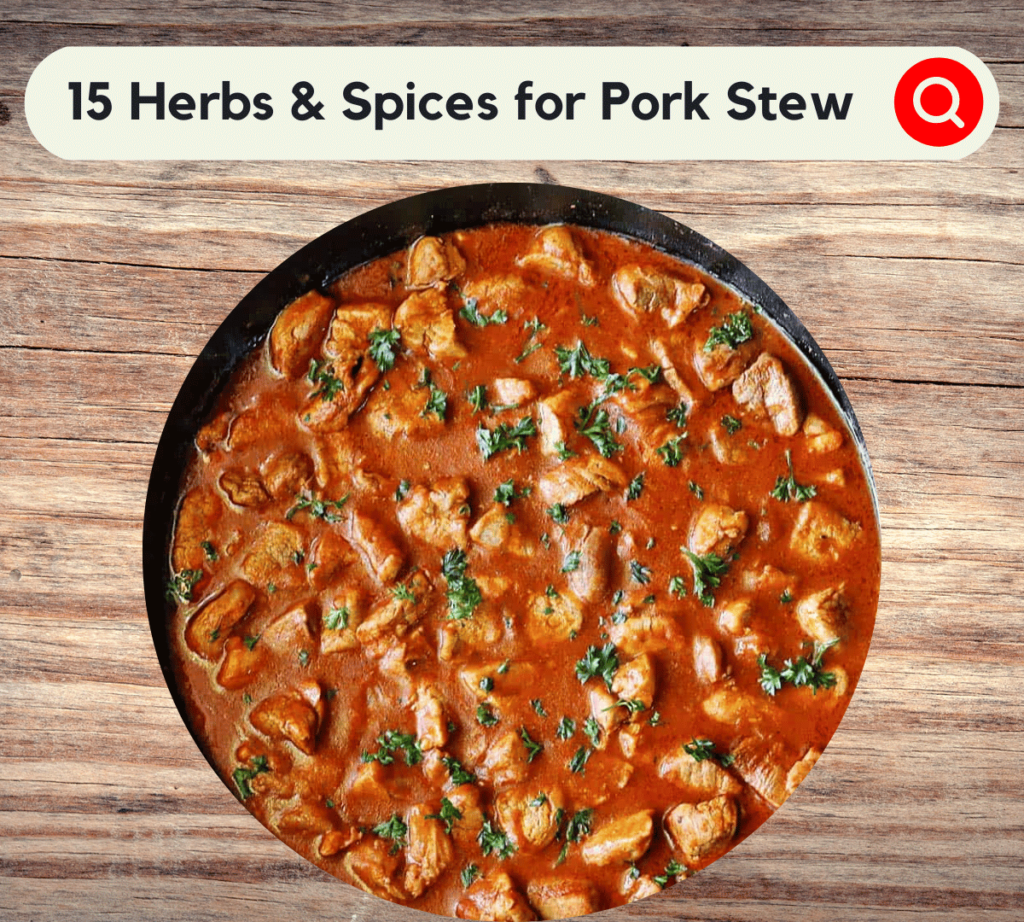
1. Thyme

Thyme is a great herb to use in pork stew due to its earthy, lemony flavor.
Thyme is one of the classic ingredients of bouquet garni, and it has a slightly medicinal taste that can cut through heavier dishes like stews or chili.
The leaves have very small amounts of natural oil that release their flavor even when cooked for long periods of time.
For this reason, thyme works best as a dried ingredient but can also work well as fresh if chopped finely.
When adding thyme to your pork stew you want to use enough so that its flavor is prominent but not overpowering; around 1-1 ½ teaspoons should be enough depending on how strong you like the flavor.
Add it towards the end of cooking and stir it into other flavors such as garlic or onion first before adding them to the dish – this helps bring out more subtle nuances in thyme’s flavor profile.
Finally, don’t forget to remove any stems at the end since they can be quite tough to chew on.
2. Rosemary
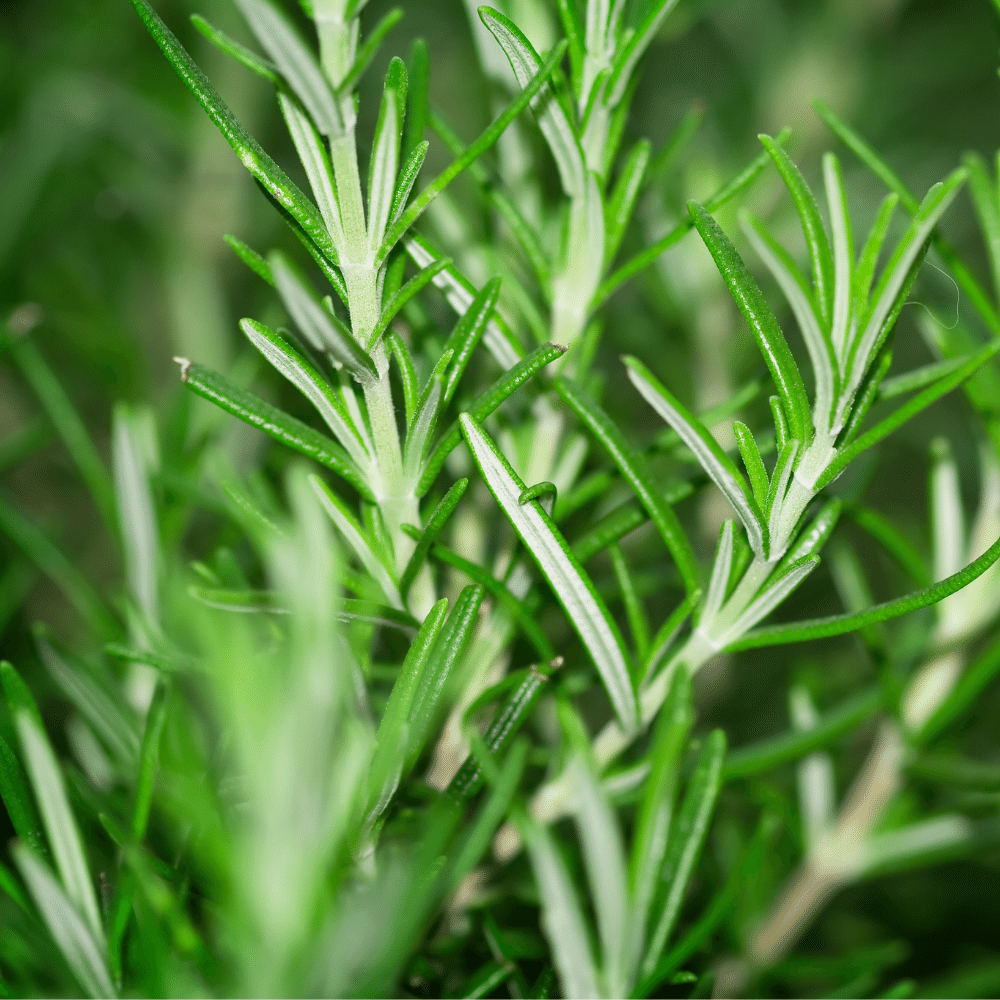
Rosemary is a woody and fragrant herb that pairs well with pork, adding a refreshing aroma and complex flavor to your stew.
Rosemary has both sweet and savory notes in its taste profile, so it will bring a depth of flavor to the stew without overpowering other seasonings.
When adding rosemary to a pork stew, start off by using about 1 tablespoon of chopped fresh rosemary leaves per pound of meat for a subtle hint of this herb’s flavor.
If you’re using dried rosemary, reduce the amount to about 1 teaspoon per pound.
You can also add sprigs of fresh rosemary towards the end of cooking time for more intense aromatics.
Be sure not to overdo it as too much can make the dish unpleasantly bitter tasting.
3. Bay Leaves

Bay leaves are a fragrant herb that adds a warm, woodsy aroma to meat stews.
When adding bay leaves to pork stew, use about two or three whole leaves for every four servings of the stew you are making.
Crush or grind up the bay leaves before adding them to your stew to get the most flavor out of them.
Bay leaves have an intense flavor, so they should be used sparingly and removed prior to serving.
As they cook in your pork stew, bay leaves add subtle notes of oregano, thyme, and mint alongside hints of raspberry and nutmeg.
This combination pairs well with many root vegetables commonly found in pieces like carrots, potatoes, and turnips.
4. Salt

Salt is a fundamental seasoning for any pork stew.
Not only does it help to add flavor to the dish, but its addition also helps to enhance the flavor and texture of all of the other ingredients used in the recipe.
You should start by adding 1 teaspoon (5 grams) of salt into your pork stew, tasting as you go until you achieve your desired level of seasoning.
5. Black Pepper

Black pepper is an excellent herb or spice to use in your stew.
It adds a sharp, peppery flavor and will help to emphasize the meaty flavor of the pork.
The amount you should use really depends on your personal preference for how much heat and spiciness you want in the dish; typically, about 1 tablespoon per 8 servings is a good starting point.
You can always add more later if needed!
When adding black pepper to your stew, it’s best to do so at the end of cooking time since prolonged heat can dull its bold instincts and flavors.
If you are using a pre-ground powder form of pepper, simply sprinkle it over top before serving; however, if you’re using cracked peppercorns then crush them with a mortar and pestle before sprinkling on top.
6. Garlic Powder
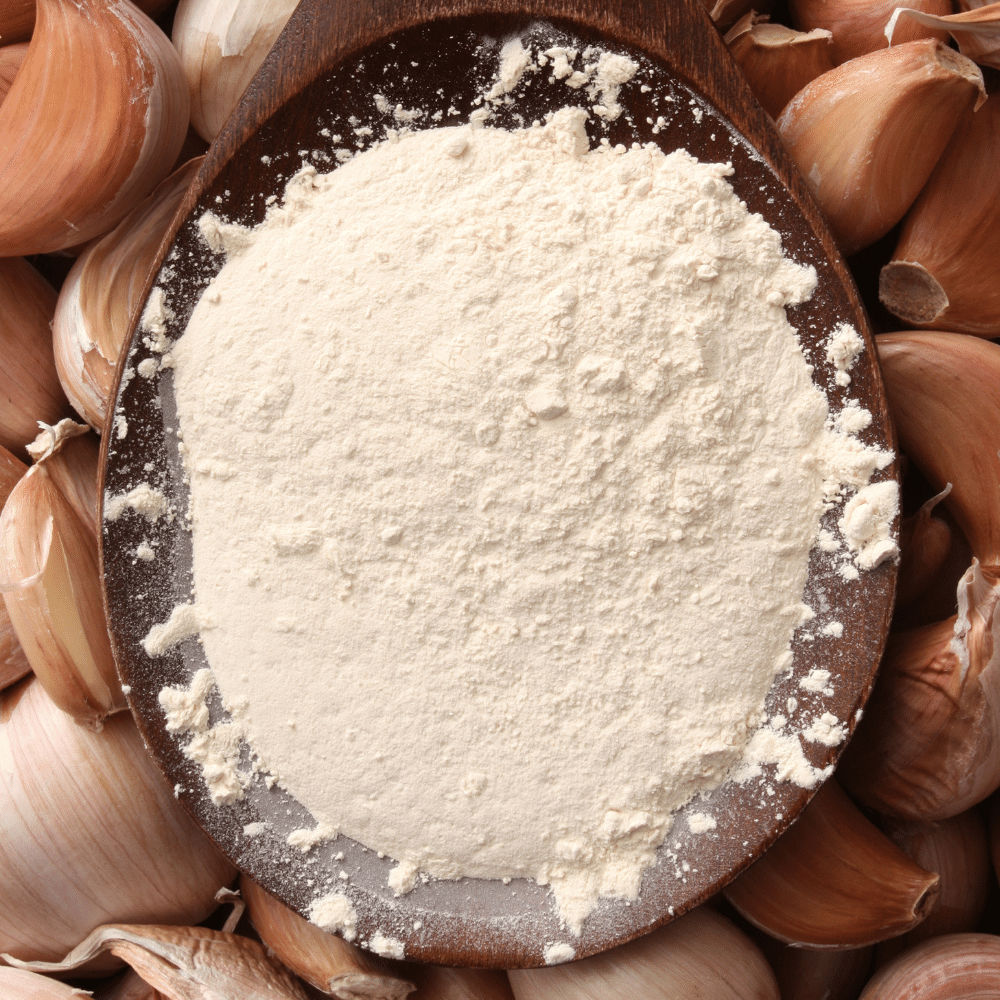
Garlic powder is a great addition to any stew as it adds both flavor and umami.
Start by adding 1 teaspoon of garlic powder.
If you prefer a more intense flavor, add up to 2 teaspoons.
Garlic powder gives the stew a pungent and savory aroma that will fill your kitchen with warmth and homeliness.
When added to the pork stew, it brings out its rich flavor profile, gently mixing with the natural sweetness of the meat for balance.
It has an earthy taste similar to fresh garlic but without being overpowering which makes it ideal for this type of dish as too much garlic can be overwhelming in any recipe!
Lastly, when cooked properly, garlic powder helps thicken stews thanks to its starch content providing a velvety texture at every bite!
7. Onion Powder

Onion powder is a great addition to any stew for added flavor.
It adds the robust taste of onion without adding texture, and its mildness allows it to blend nicely with other flavors.
Onion powder can go from subtle to strong depending on how much you use, so start with a smaller amount first and then adjust based on your preferences.
As a general guideline, an average-sized pot of stew could be seasoned with 1-2 tablespoons of onion powder.
Onion powder will give your stew an intense savory and umami flavor that pairs well with the rich fat of pork shoulder or bacon.
Added near the beginning of cooking time, it will help build layers of flavor as you add meat and vegetables when paired with fresh herbs like rosemary or thyme.
Use too much though and you may end up overpowering all other ingredients in your dish; try using a smaller amount than usual if this happens!
8. Smoked Paprika

Smoked paprika is a great choice for adding flavor to pork stew.
It has an intense smoky flavor and aroma that will add an extra layer of complexity to your dish.
To get the most out of its flavor, use 1-2 teaspoons per recipe, preparing it just before adding it in so that the spices don’t lose their potency during storage.
When cooked correctly, smoked paprika gives off pleasant notes of roasted garlic, onion, and sweet peppers that complement pork perfectly.
Furthermore, it also adds a nice redish orange hue which will make your stew look appetizing when served.
9. Star Anise

Star anise is a great spice to use in pork stew as it lends a warm, sweet-spicy flavor.
It is most commonly used in Chinese five-spice blends, but also works well when combined with other spices and herbs.
Star anise has quite a strong flavor, so you should start off by adding just 1 star anise to your stew.
You could try breaking the star into smaller pieces before adding it to the dish and keep tasting as you go until you find the right balance of flavor that you prefer.
As star anise can easily overpower other flavors if too much is added, it’s important to add it towards the end of cooking time rather than at the beginning; this will ensure that its intense flavors don’t overwhelm any others while allowing them time to blend together during simmering.
10. Basil

Basil is a flavorful and fragrant herb that adds a bright, sweet flavor to stews.
When used in stew recipes its flavor is best balanced when combined with other herbs such as bay leaves or oregano.
The amount of basil you add will depend on the size of your pot and how much meat you are using- generally 1 teaspoon per 2 pounds of stew meat.
To use, sprinkle some dried or fresh (chopped if fresh) over the top of the stew at the end of cooking time so it stays more vibrant yet still blends with all the flavors before serving.
11. Cumin

Cumin is a fragrant and earthy spice common in Southwest and Latin American cuisine.
It adds a warm, smoky flavor to pork stews, as well as other dishes.
To use it in your stew, add about 1 teaspoon of cumin powder for every 2 cups of stew ingredients.
For a milder flavor, you can use less; for more pungency feel free to increase the amount or additionally toast and lightly grind whole cumin seeds before adding them to the pot.
If you have picky eaters in your home who don’t like strong flavors, add only half of the suggested amount when first testing this herb out – then adjust according to taste once everyone has had a chance to sample the finished dish!
12. Cayenne
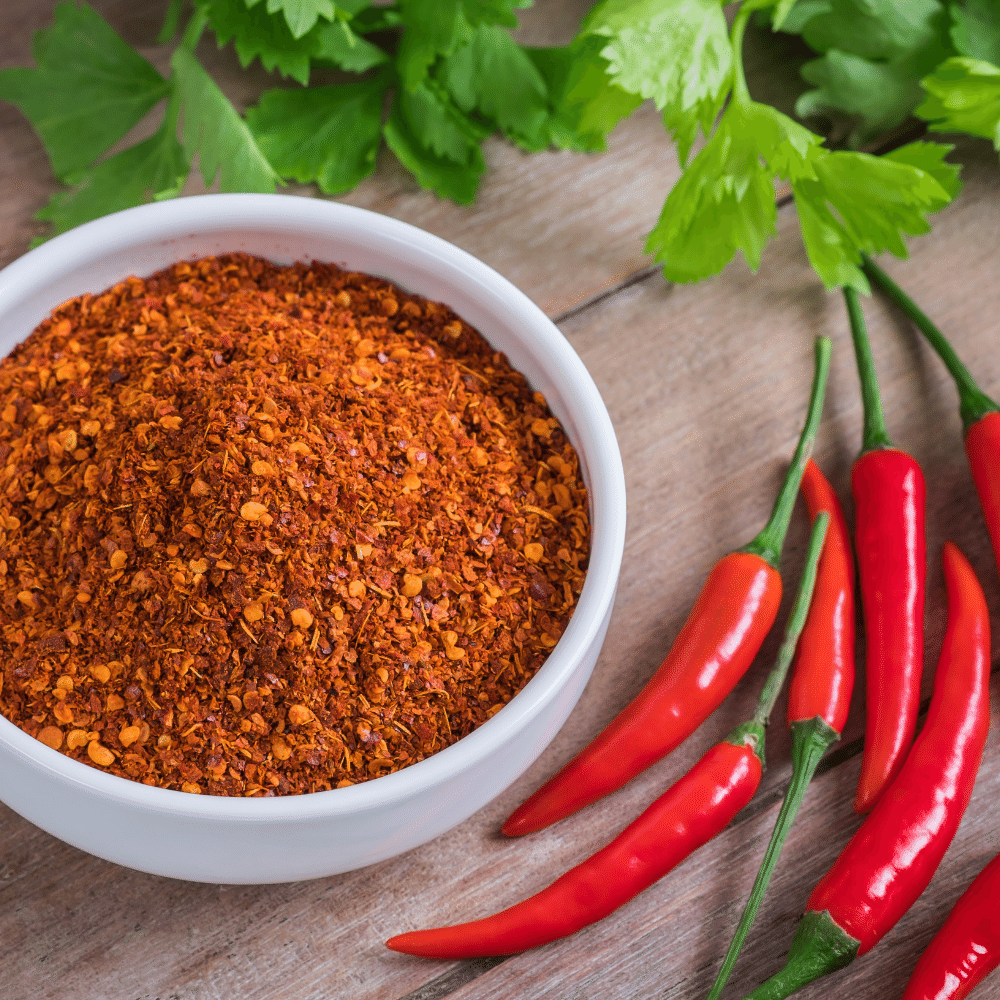
Cayenne adds a spicy, hot flavor to pork stew.
It is an excellent way to bring out the savory sweetness of pork while adding depth and kick.
To use cayenne in your stew, start by adding 1/4 teaspoon, then increase according to your preference.
As with other spices and herbs, it’s important not to overdo it – a little bit goes a long way!
Cayenne can bring rich flavors and surprising warmth that creates depth within a standard savory dish like pork stew.
Its spiciness will compliment the sweetness of the pork without overpowering the dish or masking any of its more subtle flavors such as vegetables or potatoes.
In addition, the cayenne brings an unexpected heat that enhances all other flavors present.
13. Chili Powder
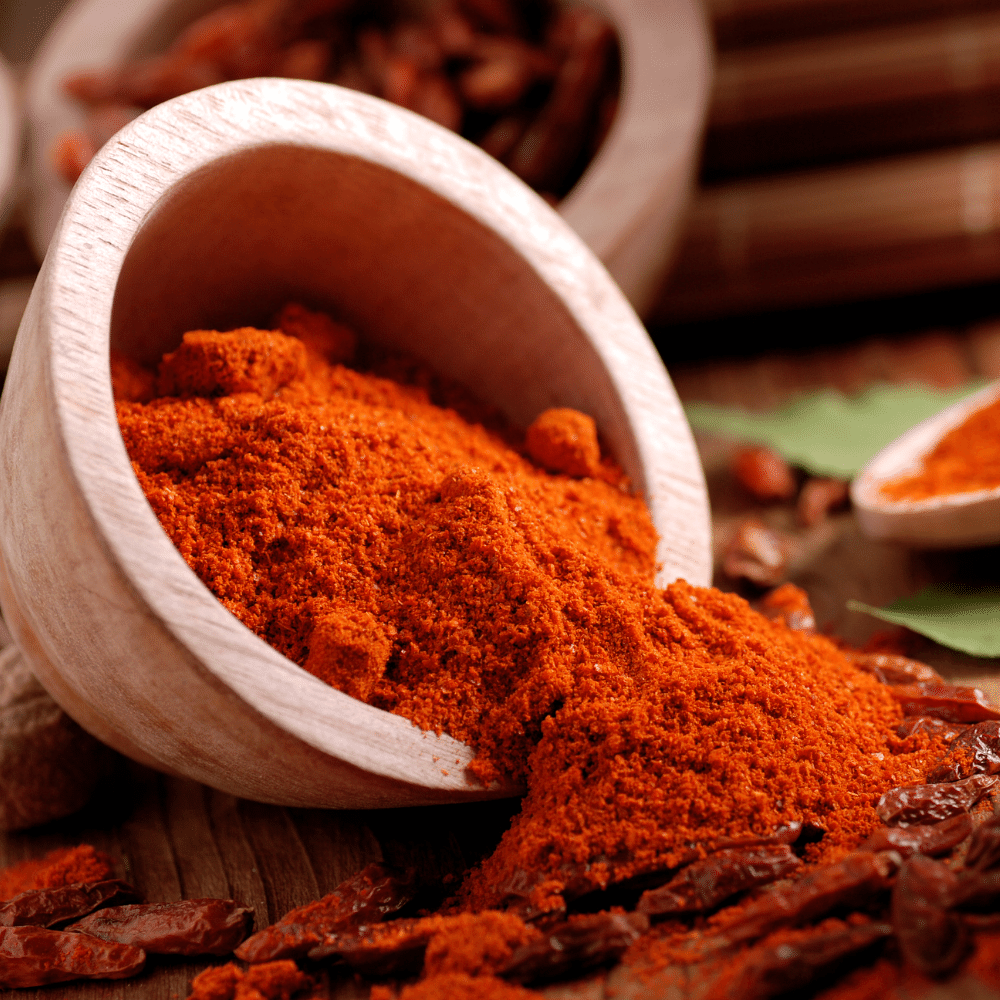
Adding chili powder to your pork stew is a great way to add some depth of flavor and heat.
Chili powder generally consists of chilies, cumin, garlic, oregano, and other spices depending on the variety.
The blend gives you a nice smokiness as well as a slight heat without being overwhelmingly spicy.
When adding chili powder to your pork stew you want to go lightly at first and then adjust according to taste; if using 1 tablespoon of chili powder start with 1/2 teaspoon, taste it, and increase accordingly.
Bear in mind that when spicing up dishes like stews the flavors will deepen over time with continued cooking so don’t overdo it too soon!
14. Oregano
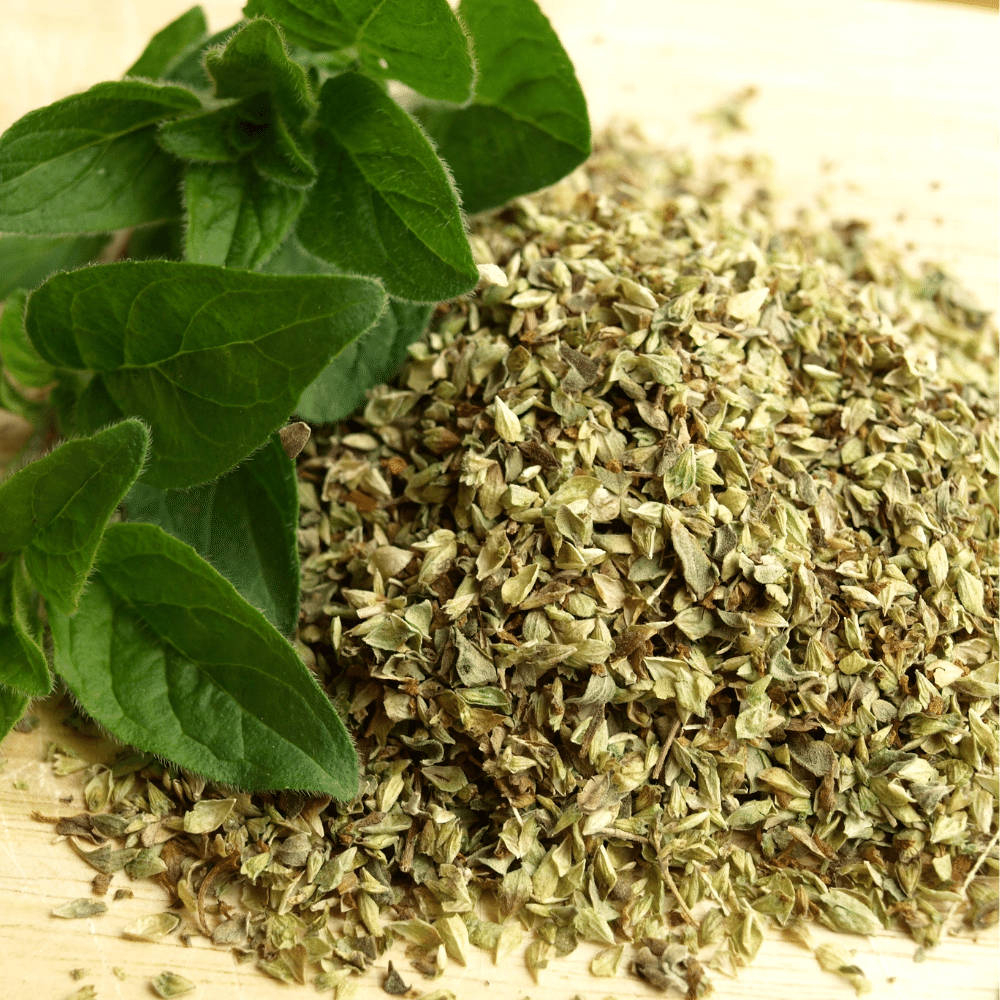
Adding oregano to your stew will create a great depth of flavor and brighten up the overall taste.
The herb has intense aromatic properties that give off both spicy notes and the sweetness of thyme.
When adding oregano to your stew, you should use 1 teaspoon per pound of pork or according to taste.
When using fresh oregano, double this amount as it tends to be milder in flavor than dried.
You can add it during the last 15 minutes or so of cooking to ensure that the flavors don’t become too harsh or bitter.
15. Tarragon
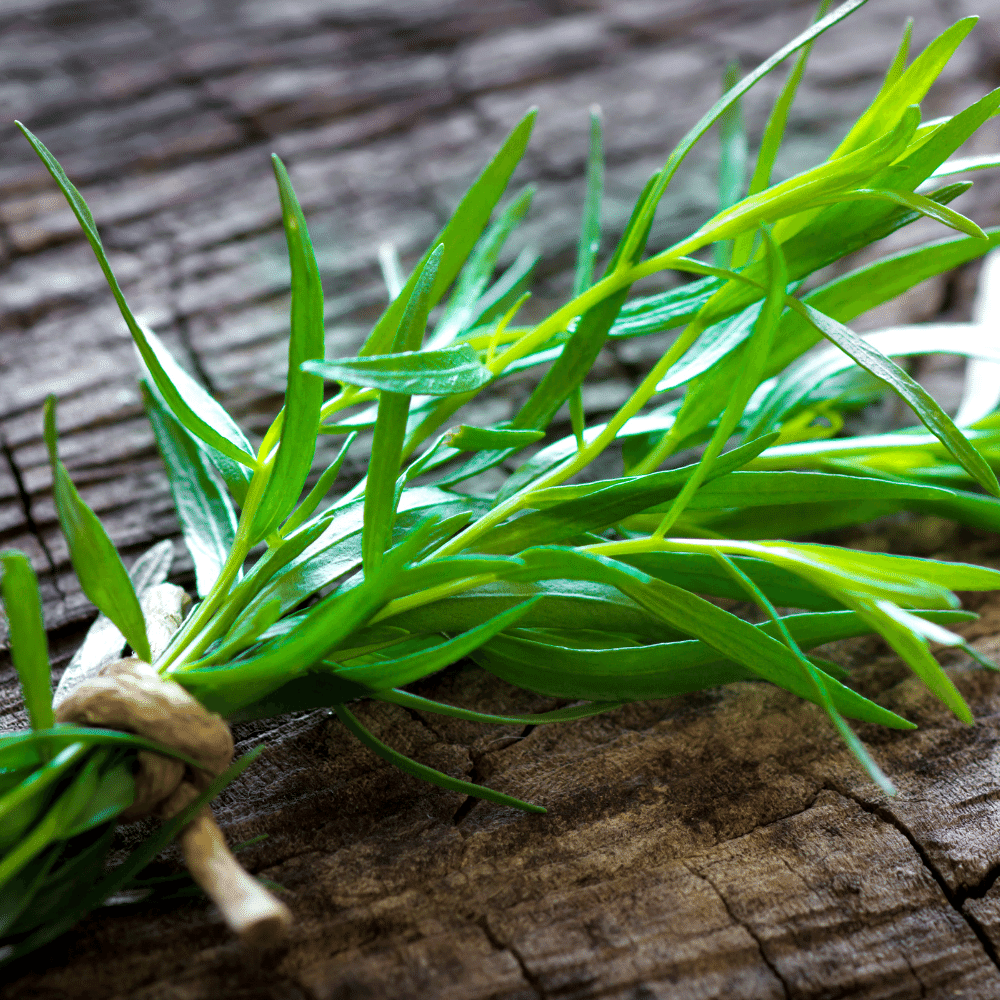
Tarragon is an herb with a unique flavor that adds depth and complexity to pork stew.
It has notes of licorice, lemon, and anise; it contributes a mildly sweet flavor when cooked in savory dishes.
Tarragon should be added towards the end of cooking time (last 10 minutes) to ensure the flavor is preserved in the dish.
About one teaspoon should suffice for most recipes with four servings – add it straight into your pot at the end of cooking, remove from heat and let steep for a few minutes before serving your stew.
If you find you’d like more tarragon flavor in the dish, start by adding small amounts over multiple batches until you achieve desired results.
Related:
What Herbs Go with Beef Stew? 10 Best Herbs
15 Must-Have Herbs and Spices for Chicken Stew
18 Must-Have Herbs and Spices for the Perfect Lamb Stew
18 Best Herbs And Spices for Butternut Squash Soup
20 Best Herbs and Spices for Chicken Noodle Soup

15 Best Herbs and Spices For Pork Stew
Ingredients
- Thyme
- Rosemary
- Bay Leaves
- Salt
- Black Pepper
- Garlic Powder
- Onion Powder
- Smoked Paprika
- Star Anise
- Basil
- Cumin
- Cayenne
- Chili Powder
- Oregano
- Tarragon
Instructions
- Pick your favorite herbs or spices from this collection to add to your stew.
- Prepare the rest of your delicious meal.
- Enjoy in no time!
Hi, I'm Benjamin. I love cooking, long walks, and my girlfriend! Here you’ll find simple and delicious recipes that you can make in 30 minutes or less.

